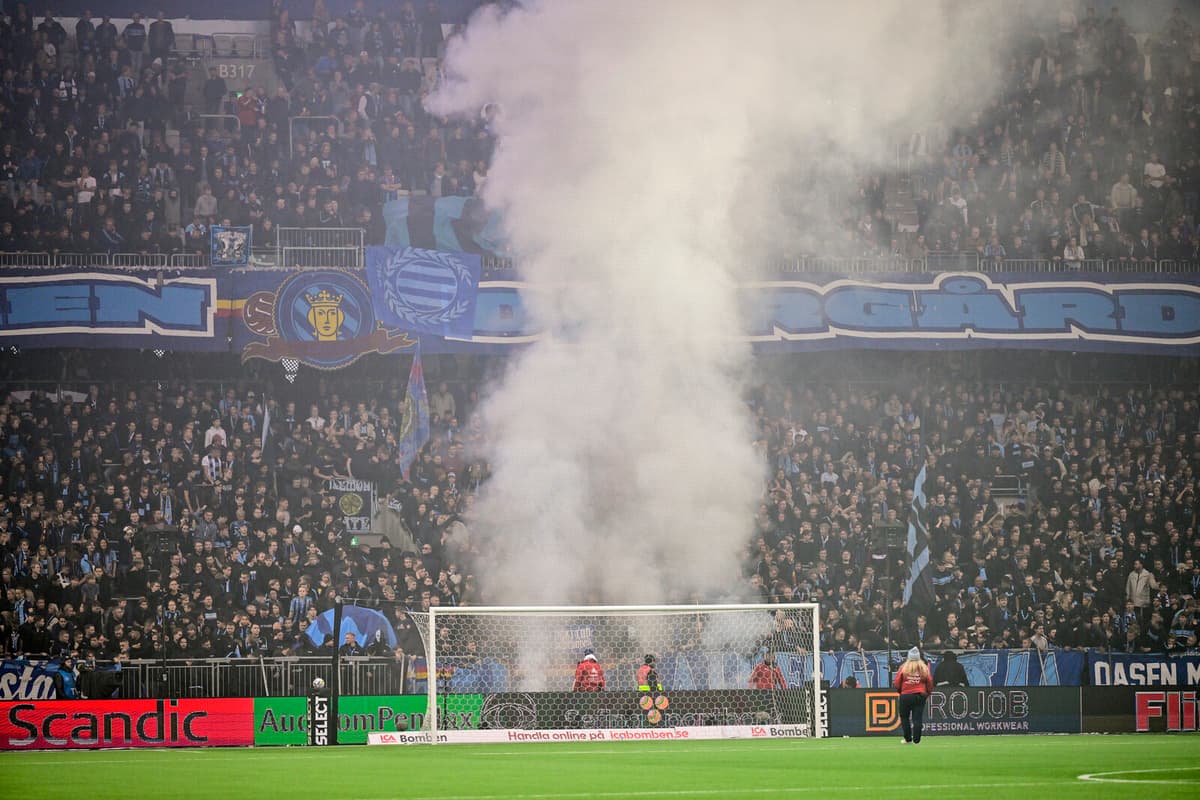+ What happened?
Sunday's football derby between Hammarby and Djurgården became historic when the police decided to dissolve a public event – which meant the match would be played without an audience. The match was interrupted after 76 minutes due to thrown bangers and pyrotechnics from parts of the Djurgården supporters.
Later, it was decided to play the match to the end on Monday without an audience. Hammarby won 2–0, which was the score when the match was interrupted.
+ Why did the police make the decision?
According to the police – who made their decision after a so-called match meeting – the public event was dissolved because the organizer could not guarantee order and safety.
Sports results are not something we consider in our authority's assessment. We look at safety and nothing else, explains Mats Karlsson, head of the intelligence unit at the police in Region South, who often serves as the commanding officer at high-risk matches in southern Sweden.
The decision to hold a match meeting is made by football's stakeholders, not by the police. At such a meeting, the police only participate to hear, for example, what measures the organizer will take to ensure order.
+ Why weren't parts of the arena emptied?
It is possible to empty sections of an arena, but such a decision must be made by the organizer.
The organizer can, however, say that they want to empty a stand and then they can request assistance from us if they meet resistance, says Mats Karlsson.
+ Who is responsible for the audience leaving?
Large parts of the Hammarby supporters refused to leave the arena after the police's decision. Hammarby's security chief Göran Rickmer told several media outlets that it should be up to the police to get the audience to leave, since there was no longer an organizer after the police's decision.
That is a misconception he is spreading. The dissolution of a public event only occurs when everyone has left the arena. Until then, the organizer has the responsibility, says Karlsson.
+ What is a public event?
The threshold for dissolving a public event is much lower than for dissolving a public gathering, such as a demonstration on a square.
There is much greater constitutional protection for a public gathering than for a public event. From the legislator's perspective, a public event has much lower protection, says Mats Karlsson.
It is the organizer of a sports event, a so-called public event, who is responsible for order and safety at the event. The police should support the organizer in that work and can decide on conditions based on the current situation.
The conditions can, for example, concern changed numbers of security guards and stewards, changed entrance arrangements, changes within the arena to separate the audience into different parts of the sports facility, or limitations on the number of spectators in different sections.
The police authority's conditional giving is based on the provisions of the Public Order Act.
If the police assess that disorder can arise, the police can always decide on other or additional conditions that are deemed necessary and suitable with regard to order and safety.
Source: The Police.






